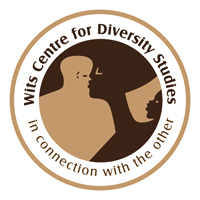Alumni Relations
-
Alumni Relations and Critical Diversity Literacy
Given the mission and vision of the Wits Centre for diversity studies, (WiCDS) we are committed to creating equitable diversity literacy societal transformation and contextually sound social justice knowledge production through research, education, and social engagement. While not entirely divorced from the university-wide alumni initiative, this association aims to support a network of former graduates in the field of critical diversity studies. This association will not only help to showcase the amazing work we do but also help to raise the profile of the Centre and the entire university. This association positions itself as a resource to further enhance the education of our current students and thus moves beyond the tokenism and monetary feel-good payoff of the standard alumni associations.
The association also seeks to celebrate the outstanding work done by our former and current graduates and their experiences of using Critical Diversity Literacy as a tool and theory of change to further social justice issues in their everyday lives.
-
Alumni Reflections
The Wits Centre for Diversity Studies (WiCDS) is committed to creating equitable, diversity literate societal transformation, and contextually sound social justice knowledge production through research, education, and social engagement. The Centre has pioneered the use of Critical Diversity Literacy (CDL), a framework for reading and acknowledging the hidden power relations within society that allows inequality to persist. WiCDS wants to harness the emancipatory power of CDL to ensure the dignity of all people is valued through a programme of capacity building and training within the South African community.
The impact of CDL is slowly beginning to show in the work that is being done in society, by our former students and the strengthening of partnerships with CSOs that value social justice. CDL ensures that we read the prevailing situations for what they really are and tease out power dynamics and how their interplay either rewards or excludes certain groups and bodies.
Some of the work that our Alumni are doing
- Research assistant
- Research Consultant
- Artistic director
- Writer and poet
- Lecturer, Ph.D. student, writing fellow, writing consultant, tutor
- Associate Senior Lecturer
- Intern assistant teacher
- General Manager
- Senior Lecturer
- HR Project Lead
- Social Services
- Executive Director
- Marketing and Liaison Officer.
-
Interesting terms and quotations on how CDL has impacted our Alumni’s work
CDL creates important understandings in the pursuit of social justice and thus we reflect on some of the important terms and theories through excerpts from our Alumni.
“The politics of knowledge production; epistemic in/justice; sexuality X race X gender X coloniality”
“How to create a more socially engaging work environment and being able to relate much more culturally impelling my creative work has become. Writing for the correct target market”.“Gender, decolonization, racism”
“Yes! I definitely use the Centre's and Melissa's CDL conceptions of and approaches to power, difference, otherness, and the social constructed-ness of identity and life through language and institutions. Specifically in my lecturing on Critical Thinking for accounting students where I use topics such as land, language politics, gender-based difference and violence, and corruption to teach critical thinking. I try and filter all of this through the framework of CDL which makes it much more accessible to first-year students in accounting. Similarly, I bring these understandings and approaches to my interactions with students as a writing fellow and consultant. Overall, it's not just a pedagogy or singular concepts which I've gained and used through studying at WiCDS, it's an over-arching philosophy and guiding approach to all the work I do and all the people and institutions I interact with”.
“Privilege, difference, acceptance, respect”.
“Critical Race Theory and Intersectionality”


